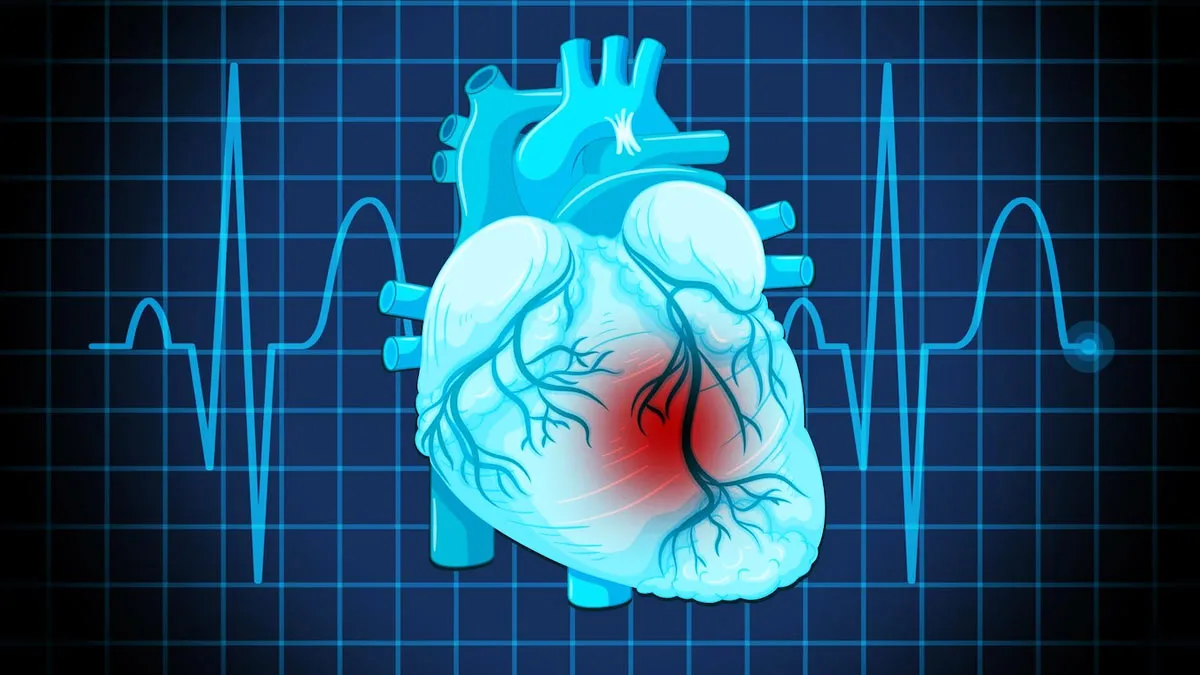
Eating disorders are commonly mislabeled as either purely psychological or lifestyle issues. However, the truth is that they are serious and even life-threatening diseases. Their impact extends far beyond an individual's psyche, displaying horrific physical effects. Perhaps most lethal among these is the impact upon the cardiovascular system. Unhealthy eating can translate to a very unhealthy heart, with complications that range from brief arrhythmias to instantaneous cardiac arrest.
Table of Content:-
With World Heart Day 2025 (September 29th) around the corner, OnlyMyHealth editorial team spoke to Dr (Col) Manjinder Sandhu, Principal Director of Cardiology, Fortis Hospital - Gurgaon, and he explained to us how our eating disorders can silently harm heart health. Here is what he shared with us.
Effects of Eating Disorders On Heart
The heart is a muscle, and as with any organ, it needs proper nourishment to be functional. “Eating disorders interfere with this basic requirement in different manners,” shared Dr Sandhu. Some of the direct effects include:

Anorexia Nervosa: Starvation and Slowing of the Heart
Anorexia nervosa refers to the involvement of extreme calorie deprivation and starvation, which compels the body to shift to self-preservation. In order to save energy, the body reduces its metabolism, which has a direct consequence on the heart. The heart rate and the blood pressure plummet, a state referred to as bradycardia and hypotension. In the long run, the heart muscle itself becomes smaller, a phenomenon referred to as cardiac atrophy, whose efficiency in pumping is affected and can result in heart failure.
Bulimia Nervosa: Electrolyte Chaos
At the opposite extreme is bulimia nervosa, which entails cycles of overeating followed by compensatory measures such as self-induced vomiting or excessive laxative use. These measures create a drastic imbalance of electrolytes, essential minerals such as potassium, magnesium, and sodium that govern heart rhythm. Periodic vomiting results in a life-threatening decrease in potassium levels (hypokalemia), potentially initiating life-threatening irregular heartbeats, or arrhythmias. Dr Sandhu noted that in extreme cases, these arrhythmias may cause sudden cardiac death.
Binge Eating Disorder: The Burden of Obesity
Even Binge Eating Disorder (BED), which does not involve the compensatory behaviors of bulimia, is a serious threat to the heart. The regular intake of large amounts of frequently unsuitable food can result in obesity and weight gain, which are principal risk factors for heart disease. These include high blood pressure, high cholesterol, and type 2 diabetes, all conditions which cause great stress to the heart and arteries, accelerating the risk of strokes and heart attacks.

Warning Signs and Cures
Dr Sandhu elucidated that the cardiac risks of eating disorders tend to pass unrecognised until severe. Therefore identifying the warning signs is very important. The symptoms may be subtle and include:
- Fainting or light-headedness
- Chest pain
- Heart palpitations (feeling a racing, fluttering, or throbbing heart)
- Extreme weakness
- Swollen ankles and feet
How To Recover From Eating Disorder To Protect Heart
Recovery is not only about mental well-being, it's also about physical rehabilitation. For individuals with an eating disorder, the initial and most important action to take is to obtain assistance from medical care. This can consist of a physician, a therapist who treats eating disorders, and a registered dietitian. Tracking the heart's health is a major part of this recovery process, which may include routine electrocardiograms (ECGs) and blood work to evaluate electrolyte levels.
Your heart is extremely robust. With good nutrition, medical care, and psychological counseling, many of the cardiac injuries resulting from eating disorders can be reversed. It's a long process, but one necessary for a complete and healthy life.
Also watch this video
FAQ
Can a person die from an eating disorder even if they don't appear underweight?
Yes. Bulimia and other eating disorders can result in harmful electrolyte imbalances that result in lethal cardiac arrhythmias even in people with a normal weight.How long does the heart take to recover from an eating disorder?
The recovery timeline for the heart is highly variable based on the duration and severity of the illness. Under steady treatment and proper diet, some aspects of cardiac function may recover within weeks, but complete recovery can take months or even years.Do long-term heart issues persist even after recovery?
In other instances, particularly in long-term, severe illness, there may be permanent damage to the heart muscle. Nevertheless, complete and prolonged recovery does minimise these risks and promote general heart health to a great extent. Cardiac monitoring with regular visits to a cardiologist can be advised.
How we keep this article up to date:
We work with experts and keep a close eye on the latest in health and wellness. Whenever there is a new research or helpful information, we update our articles with accurate and useful advice.
Current Version
Sep 24, 2025 19:32 IST
Published By : Tanya Srivastava
